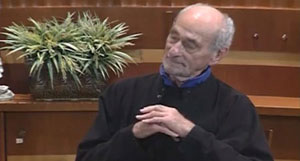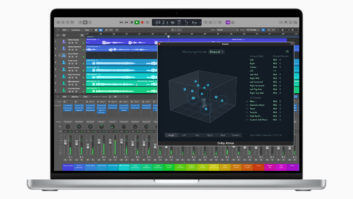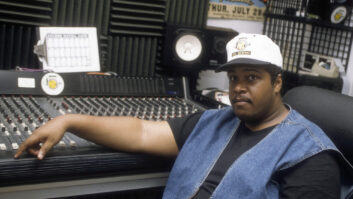
Still image of Alan Douglas from a video interview titled “Alan Douglas—Jimi Hendrix: Starting At Zero,” posted on YouTube on December 2, 2013 by Connie Martinson. Image courtesy of Pro Sound News.
As reported on Saturday, June 14, in the New York Times by Bruce Weber: “Alan Douglas, a music producer and packager who worked with jazz greats like Duke Ellington, recorded the pre-rap stylings of the Last Poets and published a book of monologues by Lenny Bruce—but who is best known as a controversial steward of the legacy of Jimi Hendrix—died on June 7 at his home in Paris. He was 82.
“The cause was complications after a fall, his daughter Kirby Veevers said.”
The New York Times’ Weber goes on to write: “As a producer primarily for United Artists Records in the early 1960s and later for his own label, Douglas Records, Mr. Douglas ushered into the world a number of notable records, among them Money Jungle (1963), a studio collaboration of Ellington, the bassist Charles Mingus and the drummer Max Roach; two early albums by the influential jazz-rock guitarist John McLaughlin; and the first two albums by the Last Poets, a group of street chanters whose rhythmic incantations and angry political verses anticipated hip-hop.”
Read the full obituary on the New York Times’ Website.
In an interview in Mix magazine’s October 1999 issue, producer Craig Street (Cassandra Wilson, k.d. lang) was asked by author Robin Tolleson: How did meeting Alan Douglas affect you? Street replied:
“I knew Alan Douglas from records that my dad had, these amazing records like Money Jungle with Mingus, Ellington and Roach. He did a bunch of Eric Dolphy records that I really love, and the only Strayhorn record in existence, which is this really odd thing. He’s the guy that discovered and produced The Last Poets. He did the early John McLaughlin records like My Goals Beyond, and then Devotion with Larry Young and Buddy Miles. Those were amazing records, and his approach, even though I didn’t really know what production was per se, kind of sunk in.
“At this interview, we took a slightly hostile point of view towards him. The attitude going in was this guy had gone in and screwed up these Hendrix records or something. [Douglas put together several posthumous Hendrix records with modern players added to Jimi’s original tracks.] In fact, he’s probably the sweetest guy in the world, one of the most generous people I’ve ever met, and over time has become a friend.”
Read Clive Young’s story about Alan Douglas’ passing on Pro Sound News’ Website.







